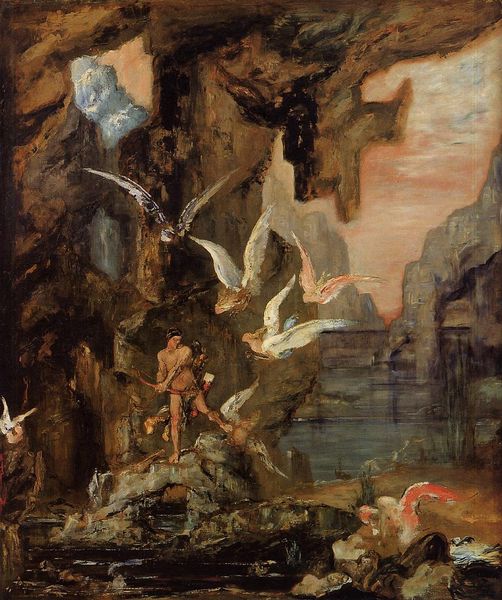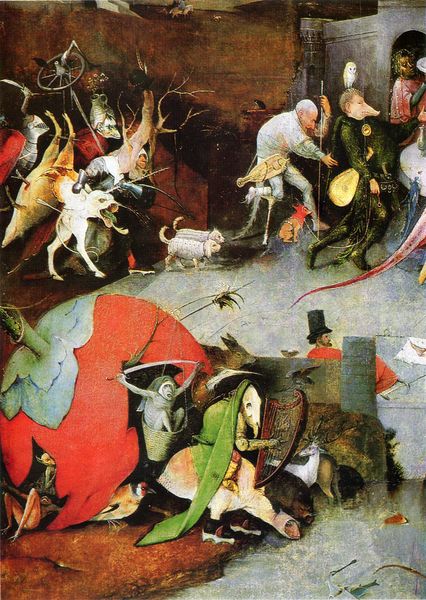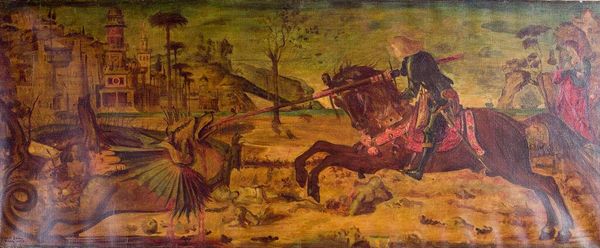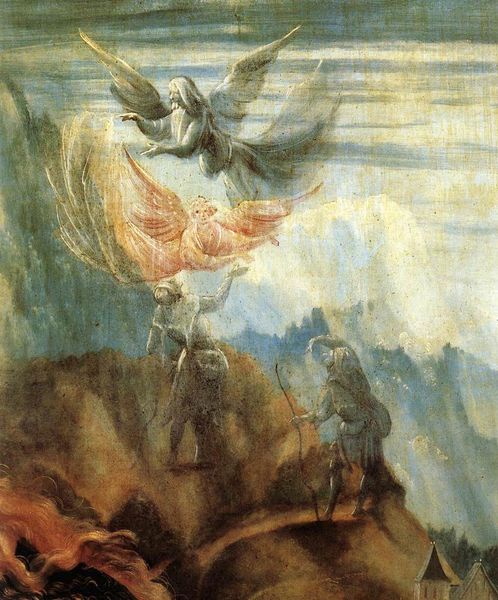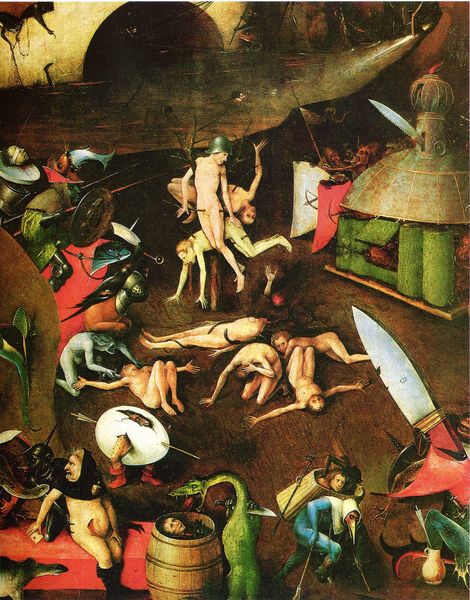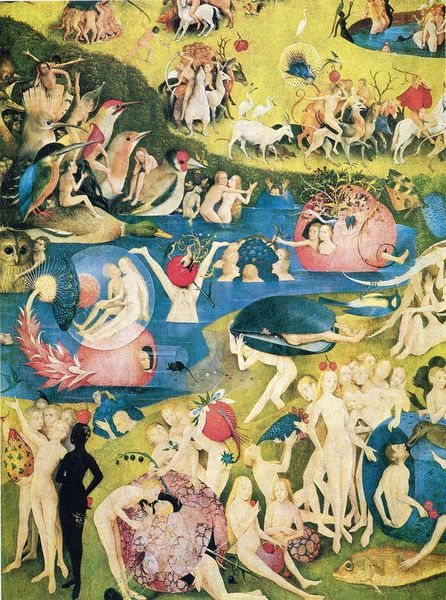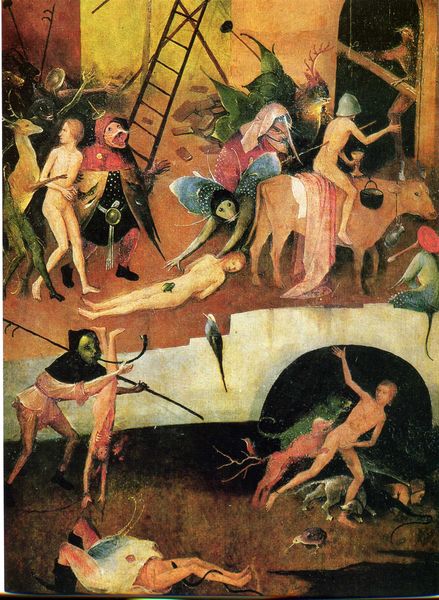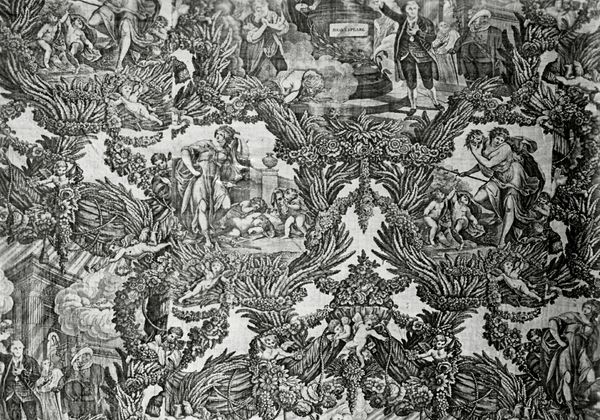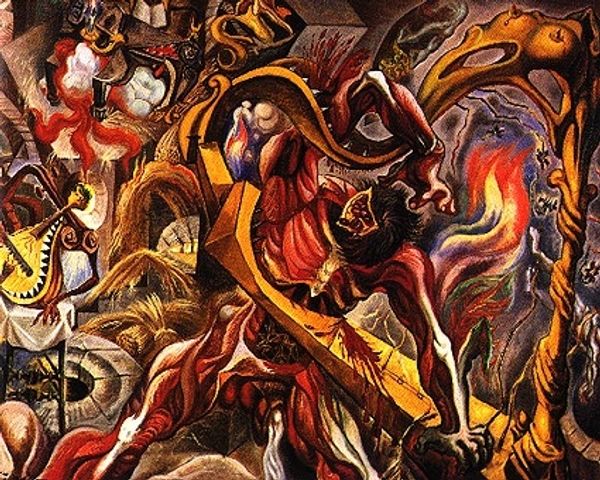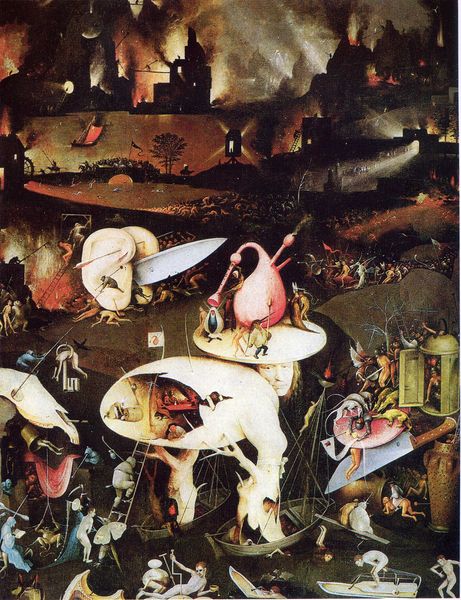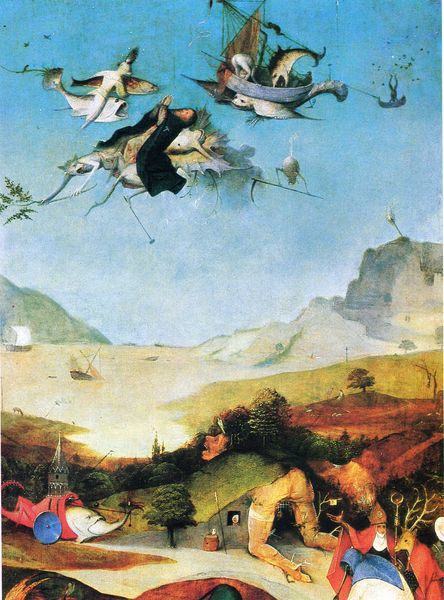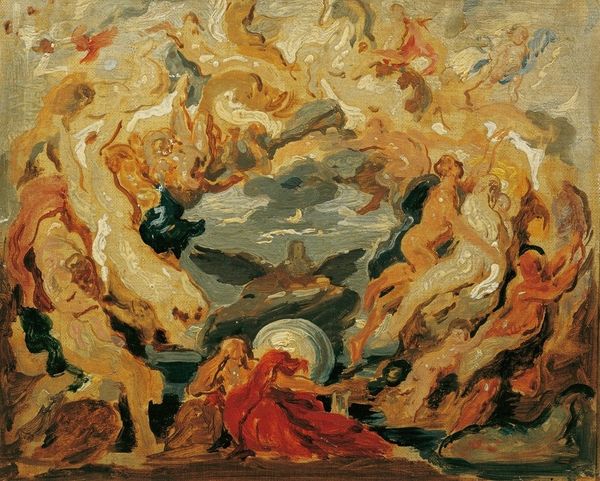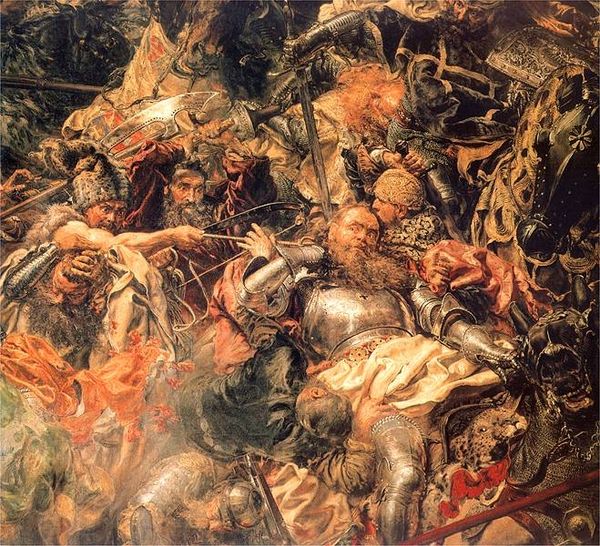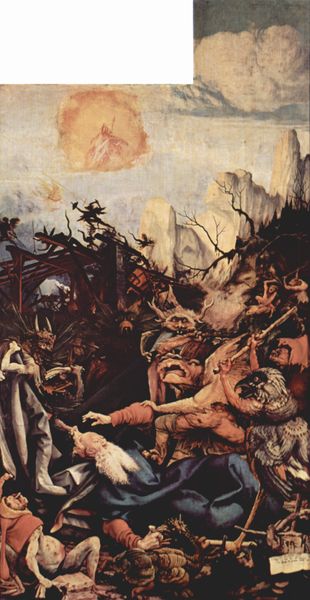
painting, oil-paint, fresco
#
allegories
#
medieval
#
allegory
#
narrative-art
#
symbol
#
painting
#
oil-paint
#
fantasy-art
#
figuration
#
fresco
#
christianity
#
mythology
#
history-painting
#
northern-renaissance
#
nude
#
christ
Copyright: Public domain
Hieronymus Bosch created this segment of "The Last Judgement," around the turn of the 16th century. The painting emerged during a period of immense social and religious tension. The impending apocalypse was a common theme in art and society. Bosch paints a deeply pessimistic vision of humanity, emphasizing sin and moral decay. His images can be interpreted as a reflection on the anxieties and uncertainties of his time. Bosch's hellscape seems to reflect the social hierarchy of the time, as some figures appear more tormented than others. The dark, chaotic imagery evokes a sense of hopelessness and despair. Bosch was quoted as saying, "I try to represent things as they are, not as people want them to be." This painting challenges traditional, romanticized portrayals of religious subjects, offering an alternative narrative centered on human fallibility. It confronts us with uncomfortable truths about ourselves and our society. The emotionally unsettling imagery is meant to invoke both fear and self-reflection, urging us to consider our own moral compass.
Comments
No comments
Be the first to comment and join the conversation on the ultimate creative platform.
